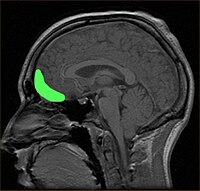
Towards identifying a method of screening for autism amongst women with restrictive eating disorders
Sign Up to like & getrecommendations! Published in 2022 at "European Eating Disorders Review"
DOI: 10.1002/erv.2918
Abstract: Abstract Objective Up to 37% of patients with anorexia nervosa score above cut‐off on autism screening measures. These individuals typically have poorer outcomes from standard eating disorder interventions and could therefore benefit from adaptations. Accurately… read more here.
Keywords: eating disorder; women restrictive; autism; eating disorders ... See more keywords

Restrictive eating disorders in children and young people: the role of the paediatrician and paediatric ward
Sign Up to like & getrecommendations! Published in 2022 at "Archives of Disease in Childhood"
DOI: 10.1136/archdischild-2021-322745
Abstract: INTRODUCTION It will not have escaped any paediatrician that the COVID19 pandemic has seen a marked rise in presentations of children and young people with restrictive eating disorders. The surge has spilled onto paediatric wards,… read more here.
Keywords: eating disorders; eating disorder; young people; children young ... See more keywords

Targeting maladaptive overcontrol with radically open dialectical behaviour therapy in a day programme for adolescents with restrictive eating disorders: an uncontrolled case series
Sign Up to like & getrecommendations! Published in 2020 at "Journal of Eating Disorders"
DOI: 10.1186/s40337-020-00338-9
Abstract: Background Radically Open Dialectical Behaviour Therapy (RO-DBT) was developed to target maladaptive overcontrol, a proposed core difficulty of restrictive eating disorders. RO-DBT is now the main group treatment model at the Intensive day Treatment Programme… read more here.
Keywords: eating disorders; treatment; overcontrol; restrictive eating ... See more keywords

Can adolescents with eating disorders be treated in primary care? A retrospective clinical cohort study
Sign Up to like & getrecommendations! Published in 2021 at "Journal of Eating Disorders"
DOI: 10.1186/s40337-021-00413-9
Abstract: Background Family-Based Treatment (FBT) is considered the first-line intervention for adolescent anorexia nervosa. However, access to this treatment is limited. Treatment programs for other pediatric mental health conditions have successfully overcome barriers to accessing evidence-based… read more here.
Keywords: eating disorders; primary care; treatment; restrictive eating ... See more keywords

Limbic-thalamo-cortical projections and reward-related circuitry integrity affects eating behavior: A longitudinal DTI study in adolescents with restrictive eating disorders
Sign Up to like & getrecommendations! Published in 2017 at "PLoS ONE"
DOI: 10.1371/journal.pone.0172129
Abstract: Few studies have used diffusion tensor imaging (DTI) to investigate the micro-structural alterations of WM in patients with restrictive eating disorders (rED), and longitudinal data are lacking. Twelve patients with rED were scanned at diagnosis… read more here.
Keywords: limbic thalamo; projections reward; eating disorders; thalamo cortical ... See more keywords